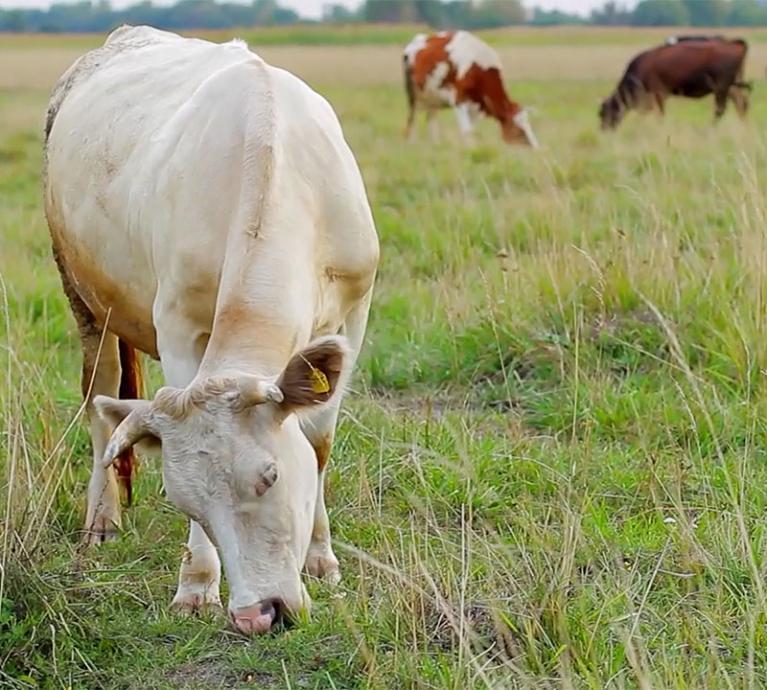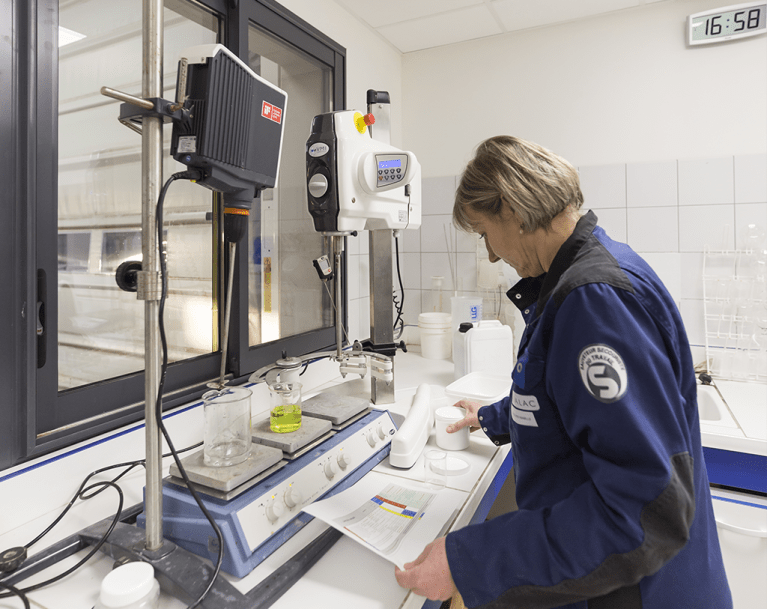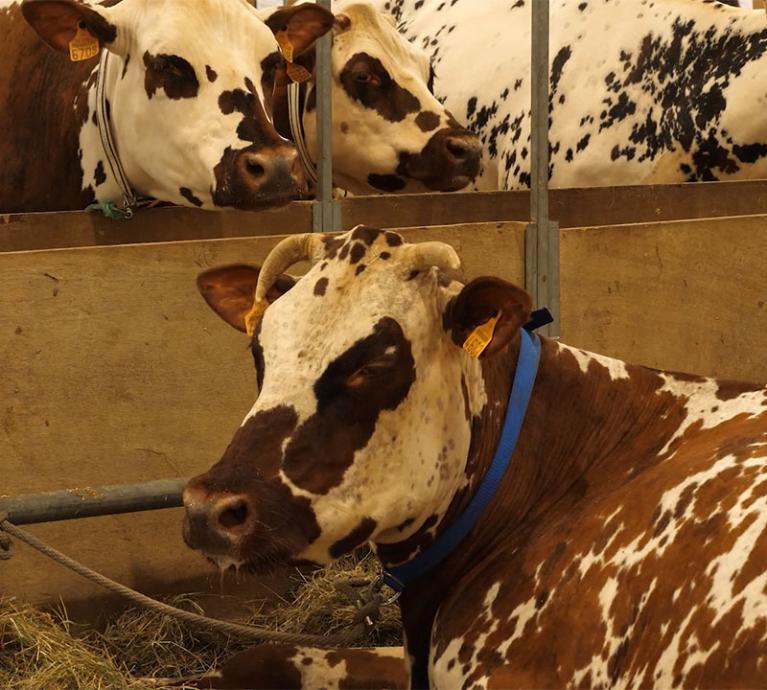- Space - Rennes
- Ruminants
- Dairy and beef cattle
- Salons évènementiels
Video | Why are mineral supplements so important for ruminants?
Looking after the mineral intake of your animals is such an important part of the work we do on farms. At each stage of their physiological development, animals have different mineral requirements: for general health, growth, gestation or lactation.
Interview: Amélie Cornillet - Head of Ruminant Products at Vitalac
Space 2021 exhibition.
Expert interview :
Amélie Cornillet - Head of Ruminant Products at Vitalac
A gestating dairy cow producing 35kg of milk will obviously have greater needs than a growing heifer, but the heifer has specific needs too. The composition of basic feed rations will cover some of those needs, especially if the animals are allowed to graze fresh grass, which is rich in vitamins. But grass silage, for example, doesn’t pack the same nutritional content. So the type and quantity of minerals need to be tailored to the species, their physiological development, the rate of production and the composition of their standard feed. To do that, we use our Rumivita® programme and the results of our feed analyses, which include a breakdown of the mineral content. That gives us a precise estimate of the dose of minerals provided by the feed, and the proportion of mineral supplements needed.
Mineral intake is particularly important during certain critical phases of an animal’s development. One of the most important phases, where you really can’t afford to neglect mineral intake, is when preparing an animal for calving, because having the right mineral balance is so important for the health of both the calf and the mother. In particular, the health of the calf will depend on the quality of the colostrum, which can be improved with the addition of certain oligo-elements and vitamins. That might include selenium and Vitamin E, for example. For the health of the mother, the most important thing will be to prevent any calcium deficiency developing, and that applies to goats, sheep and cows. So we need to make sure the BACA, or balance of anions and cations, is managed effectively, but we may also need to bring in controlled doses of calcium and magnesium, for example.
Lactation is another critical phase where mineral intake is important. The milk of all farm animals is rich in calcium, potassium and phosphorus, but also in oligo-elements. So we need to make sure the animals’ feed contains enough of those oligo-elements and minerals, to cover their needs. Some foodstuffs are rich in minerals - alfalfa is rich in calcium, for example But some are not, so we need to adapt the type of vitamin and mineral supplement we use to the properties of the basic feed ration. Mineral supplements may also include buffer ingredients or additives such as live yeast or mycotoxin adsorbents which will be beneficial to the digestive health of your animals, and improve yield. That's how our Vitacarte® range works, for example.
For female ruminants, oligo-elements and vitamins play a key role in reproduction. They play an important role in the development of ovarian follicles, and during the early phases of gestation. Some fertility problems may be due to a lack of vitamins and minerals, so we often recommend using an extra dose of oligo-elements and vitamins just before and at key moments during the reproductive cycle. For example, that might mean a 10 to 15 day programme, using products such as VitaFlush Oligo® which work to boost the body's stock of vitamins and oligo-elements.
Interview: Amélie Cornillet - Head of Ruminant Products at Vitalac - registered at the Space 2021 exhibition.



